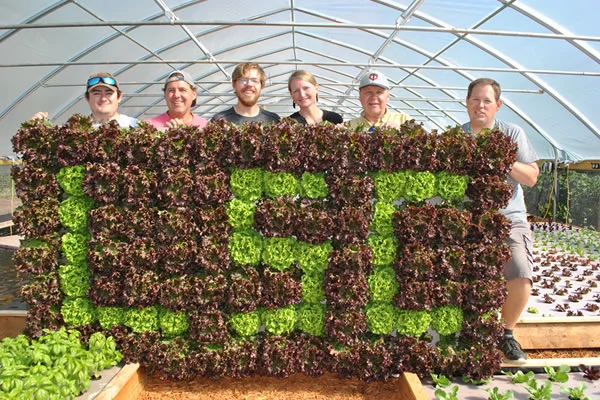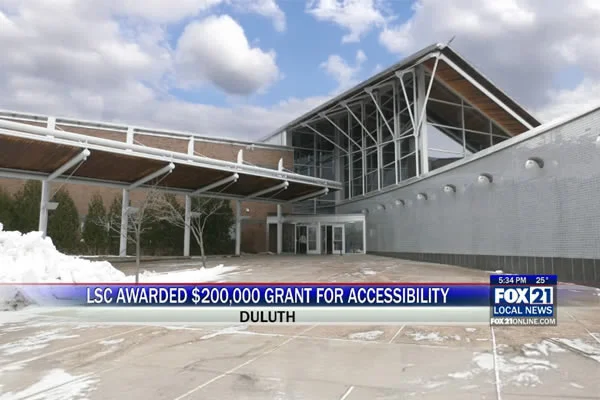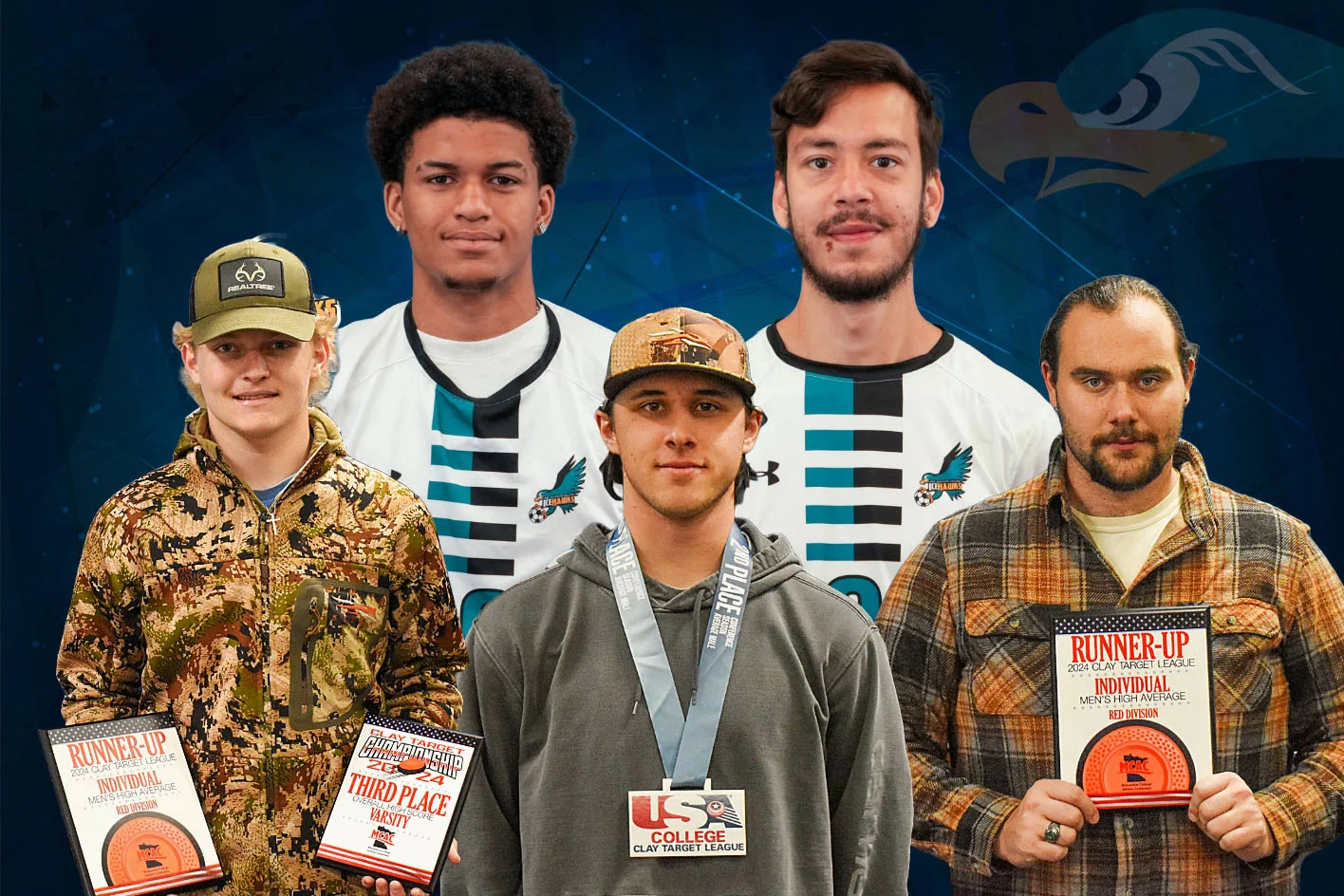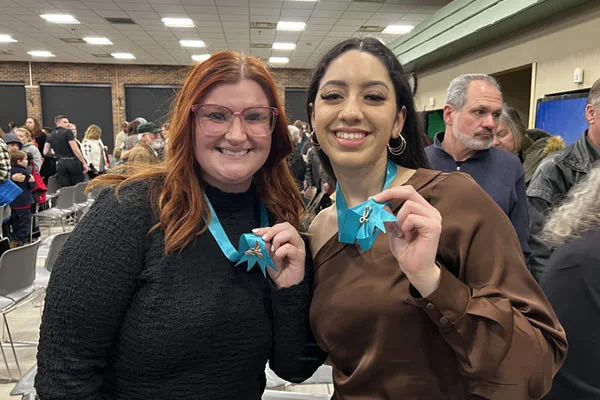
Students enrolled in the new Eco-Entrepreneurship program at Lake Superior College are receiving hands-on learning in a nontraditional classroom setting. The LSC Living Laboratory features a two-acre farm with greenhouses located on campus where students get their hands dirty while studying about the science and business of sustainable farming.
Lake Superior College’s Eco-Entrepreneurship AS degree was launched this fall and focuses on sustainable food and energy systems. “Our teaching approach is about helping our students gain an understanding of where food comes from, who grows it, how it’s grown from an energy, habitat and resource standpoint, and how it’s distributed from a sustainable and equitable perspective,” said Eco-Entrepreneurship program co-director Randel Hanson. “We help our students think about how do we help our institutions, grocery stores and restaurants gain access to healthier foods that work with their systems? How do we work with farmers and young people to bring more economically viable options for farms and farming into our systems? Students will come out of the program with an understanding of the big picture of sustainable food systems as well as an experiential understanding of multiple sustainable agriculture methods for growing our food.”
The A.S. degree program integrates environmental sustainability, hands-on field learning, and business entrepreneurship with social analysis that focuses on creating sustainable and equitable community development. “We want our students to gain a deeper understanding of our most pressing environmental problems, their most promising solutions and the business opportunities they present,” said Eco-Entrepreneurship program co-director Mike Mageau. “By working hands-on with sustainable food and energy production systems at the new LSC Living Lab, students achieve a much deeper appreciation for the challenges and possibilities associated with sustainable production techniques than they would get in the traditional classroom setting.”
Students Eric Solberg, Walker Anderson and Adison Smith are some of the students enrolled in the Eco-Entrepreneurship degree program who worked during the summer on the Living Laboratory farm site.
“I’ve never grown a thing in my life until now,” said Solberg. “I’ve learned a lot about site preparation, permaculture, and vegetable varieties.” After Lake Superior College, he will transfer to the University of Minnesota to earn a four-year degree in agronomy. Solberg plans to continue his work helping people in Haiti with building sustainable gardens and energy systems.
Student Adison Smith plans to use his education to start a rehabilitation farm for recovering drug addicts and alcoholics. “Our culture suffers from a lack of meaningful connection to the environment. I want to help marginalized people move toward a life of sustained recovery and health by offering hands-on work and connection through a therapeutic farming program.”
Student Walker Anderson transferred from LSC’s computer program to the new program. After LSC, he plans to pursue a master’s degree in horticulture. “This summer I learned everything from how to build healthy soil with microbes, bacteria and fungi to how to build a hydroponic greenhouse.” Anderson is intrigued by the industrial hemp market and plans to go into the greenhouse business.
Built this year, the Living Laboratory features a two-acre farm with approximately 6,000 feet of greenhouse space. LSC Farms-brand mixed greens and basil have been offered for sale at Super One and Mount Royal this summer and Northern Waters Smokehaus uses the greens in their sandwiches. The college also offers produce for sale to employees, students and community members twice a week at an on-campus farmer’s market. Right now, there are more than 60 varieties of vegetables and fruits growing with more than 20,000 plants under cultivation. The site is managed by Kevin Moris who managed the University of Minnesota Duluth Land Lab farm for seven years before moving to Lake Superior College. “Students will be able to participate in the total growing, harvesting and packaging process from early spring to fall,” he said. “In about a week, we will have a major crop of tomatoes, winter squash and, of course, zucchini.”
In addition to providing hands-on educational experience for LSC’s Eco-Entrepreneurship Program, the Living Laboratory farm site will showcase leading sustainable agriculture production methods as well as associated processing, marketing and distribution systems. “We plan to use this infrastructure to help coordinate activities within our regional food system, partner with other leaders in food sustainability and foster more local farm to table food production and consumption,” said Hanson. The site will also demonstrate renewable energy and efficiency technologies, host related community training programs, and support other courses and degree programs at Lake Superior College.
LSC faculty members Dr. Randel Hanson and Dr. Michael Mageau were instrumental in starting the new Eco-Entrepreneurship degree program which they now direct along with the associated Living Laboratory field site. Dr. Hanson received a Ph.D. in American Environmental Studies from the University of Minnesota and founded and directed the UMD Land Lab for the past decade, where his teaching and research focused on community-based regenerative agriculture and place-based food systems. Dr. Mageau received his Ph.D. in Environmental Science and Sustainable Development from the University of Maryland. For the past 20 years he directed UMD’s interdisciplinary degree program in Environment and Sustainability where his teaching and research focused on ecological economics, sustainable energy systems and controlled environmental agriculture.





